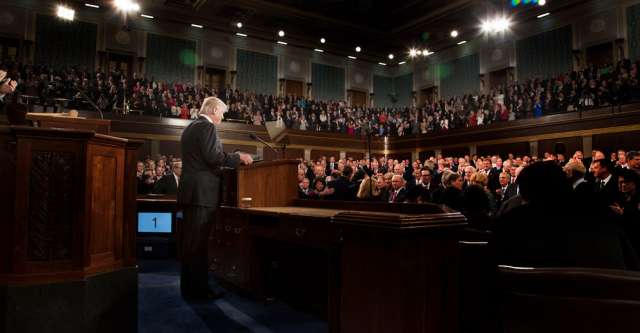About a week after Judiciary Committee Chairman Jerrold Nadler’s panel took over the current impeachment inquiry of President Trump, White House Counsel Pat Cipollone wrote him a letter stating that the White House was declining his invitation to participate in the first Judiciary Committee impeachment hearing that will happen later this week.
Judiciary Hearing
“Under the current circumstances, we do not intend to participate in your Wednesday hearing,” [1] White House Counsel Cipollone wrote in a five-page letter addressed to Judiciary Committee Chairman Nadler on December 1. This decision to not attend the hearing indicates that Trump listened to his advisers, who argue that allowing a White House presence to be at the hearing would validate a process that they have called partisan since the beginning.
On Wednesday evening the Judiciary panels first hearing will be held. The panel will be hearing testimonies from “scholars” and “professors” on whether Trump’s actions amount to “high crimes and misdemeanors” warranting impeachment and removal from office.
Nadler has not identified any of the witnesses yet, but Representative Doug Collins has requested that the witness panel include equal amounts of Democratic- and GOP-selected scholars.
A “Baseless” Inquiry
Cipollone wrote Nadler, calling the inquiry “baseless” and “highly partisan” before pointing out that Nadler had not given the president any scheduling input or time to prepare. “As for the hearing scheduled for Dec. 4, we cannot fairly be expected to participate in a hearing while the witnesses are yet to be named and while it remains unclear whether the Judiciary Committee will afford the president a fair process through additional hearings,” Cipollone remarked. “More importantly, an invitation to an academic discussion with law professors does not begin to provide the president with any semblance of a fair process. Accordingly, under the current circumstances, we do not intend to participate in your Wednesday hearing.”
“When the Judiciary Committee scheduled a similar hearing during the Clinton impeachment process, it allowed those questioning the witnesses two-and-a-half weeks’ notice to prepare, and it scheduled the hearing on a date suggested by the president’s attorneys. Today, by contrast, you have afforded the president no scheduling input, no meaningful information, and so little time to prepare that you have effectively denied the administration a fair opportunity to participate.”
Wednesday’s hearing will be the first in several hearings from the Judiciary Committee as it prepares to draft articles of impeachment. [2]
Notes:
- ^“Read the White House’s Letter Responding to Judiciary Committee Impeachment Hearing.” www.theepochtimes.com, 2 Dec. 2019, www.theepochtimes.com/read-the-white-houses-letter-responding-to-judiciary-committee-impeachment-hearing_3162431.html. (go back ↩)
- ^McArdle, Mairead. “White House Says it Won’t Participate in ‘Partisan’ Judiciary Committee Impeachment Hearing.” National Review, 2 Dec. 2019, www.nationalreview.com/news/white-house-says-it-wont-participate-in-partisan-judiciary-committee-impeachment-hearing. (go back ↩)

